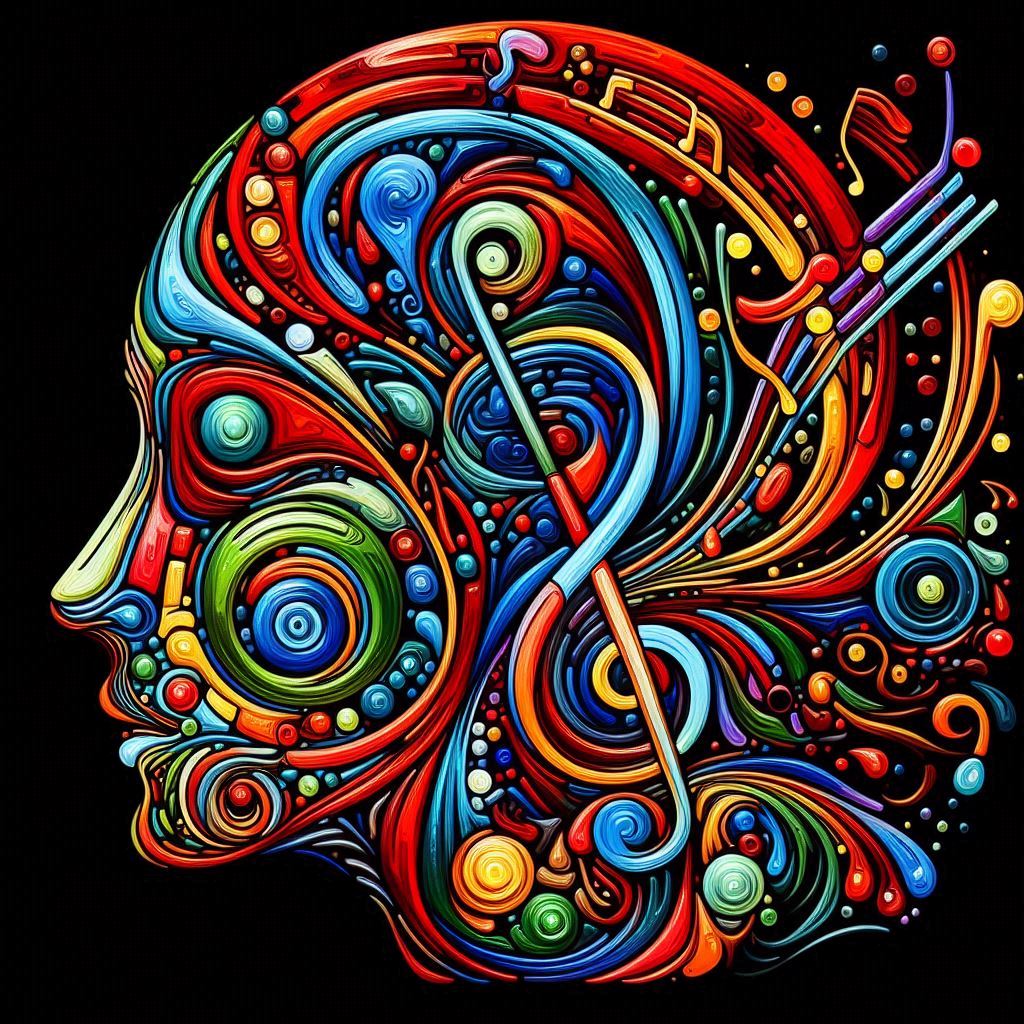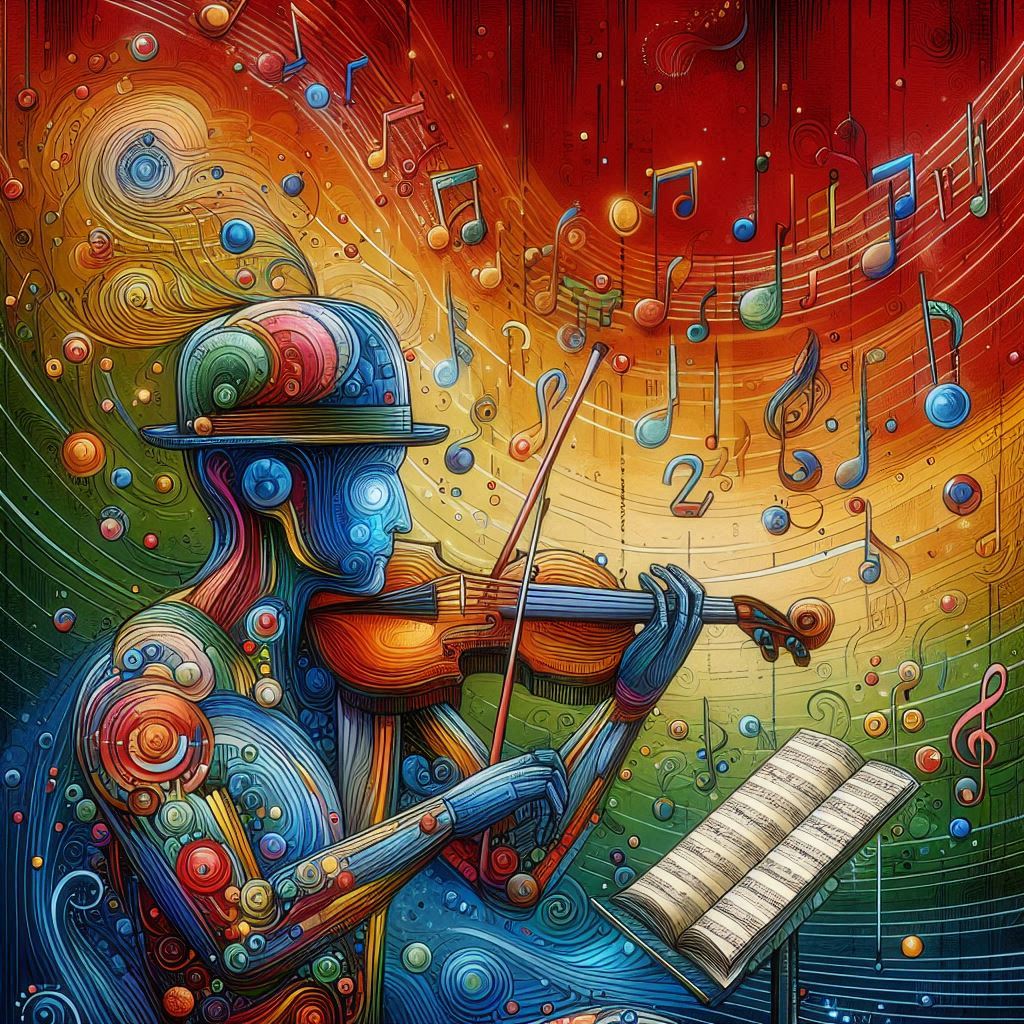Creating Tunes with AI: Music Composition Made Easy
Are you interested in composing your own music? Technology has made it easier than ever. With AI, music composition is more accessible to all levels of enthusiasts. This tool takes the complexity out of music composition, making it easy for anyone passionate about music to create their own tunes. Let’s explore how AI is changing music composition and how you can get started with this technology.
Exploring AI Music Generation
The Rise of AI in Crafting Melodies

AI music generation involves using artificial intelligence to analyze patterns, structures, and styles from existing music. It then autonomously generates new compositions. AI utilizes a variety of algorithms and inputs to create music that closely resembles that composed by humans. This includes remarkable similarities in melody, harmony, and rhythm.
AI readily understands and replicates technical aspects of music, such as chord progressions and tempo. However, its ability to convey and interpret emotional depth in music is an area of ongoing innovation.
Despite AI’s advancements in the music creation process, human creativity remains a crucial and irreplaceable aspect of music composition. AI tools serve as valuable aids to human musicians. They provide inspiration, educational resources, and alternative perspectives, ultimately enhancing human creativity instead of overshadowing it.
As AI music generation continues to develop, it is poised to coexist harmoniously with human creativity. This offers new opportunities for musicians and composers in the industry.
Defining the AI Composer: How Technology Writes Music

AI music generation involves analyzing existing music’s patterns, structures, and styles. This is similar to how human artists draw inspiration from their predecessors.
Advanced features in AI music generators, such as Chrome’s Song Maker, Google’s Magenta, and MuseNet, allow more autonomy. They produce compositions that closely resemble human creativity.
Additionally, platforms like the AI song cover generator provide users the ability to create unique song covers, blending the power of AI with artistic expression.
AI understands and replicates emotional depth in music by analyzing the mood, tempo, melody, and rhythm. However, human creativity in AI music generation is essential.
Companies like Amper Music and AIVA have developed platforms where AI and human composers collaborate to achieve inspiring and original musical compositions.
AI-generated music composition relies heavily on human creativity to push boundaries, innovate, and maintain emotional richness in musical compositions despite impressive technological achievements.
Leading AI Music Composition Platforms
MusicLM: Google’s Leap into Text-Powered Melodies
Google has created MusicLM, an AI-generated music composition tool. It’s a big leap in text-powered melody creation. MusicLM stands out by using unique structural context and positional embeddings to give the model more music-making abilities. This sets it apart from other platforms, showing its dedication to providing advanced composition tools. MusicLM is also helping advance AI-driven music creation by changing music composition and production processes.
It looks at patterns from existing music and can potentially transform the music industry by providing inspiration and educational tools. MusicLM has definitely pushed forward AI music generation with its improvements in composition technology, making the user experience better.
Soundraw.io: Personalize Your Soundtrack with AI
Soundraw.io creates personalized soundtracks using AI technology. Users can input details like genre, mood, and tempo to create unique compositions, setting Soundraw.io apart from other platforms for a more tailored experience. Human creativity is also added to the AI-generated soundtracks, infusing them with emotional and artistic elements. This active participation enhances the authenticity and originality of the music, making Soundraw.io stand out from other AI music composition platforms.
Amper Music: AI for Professional Sound Design
Amper Music uses artificial intelligence to create modern sound compositions. It studies many patterns, styles, and structures in music to create high-quality tracks.
One thing that makes Amper Music different from other AI music platforms is its skill in creating custom compositions for professional sound designers and creators. This makes it stand out from other, more general AI music tools.
Also, Amper Music offers various pricing options and features to meet the specific needs of professional sound designers and creators, making it a flexible and adaptable tool in their creative process.
AIVA: The Artificial Intelligence Composer
AIVA, the Artificial Intelligence Composer, is unique among AI music composition platforms. It stands out for its ability to autonomously generate music by analyzing patterns and styles from existing music. Other platforms offer various tools and pricing options, but AIVA’s intuitive interface and advanced algorithms make it a reliable choice for music creators seeking innovative solutions.
AIVA’s understanding and replication of emotional depth in music are comparable to those of human artists. By analyzing patterns in existing music, AIVA can replicate complex emotions, creating music with depth and nuance similar to compositions by human artists. This showcases AIVA’s ability to generate music with emotional appeal and resonance.
Human creativity is crucial in the music generation process with AIVA. While AIVA can autonomously generate music, human creators provide initial input, direction, and inspiration, influencing the platform’s output. This collaborative approach between humans and AI ensures that human creativity remains an integral part of the music composition process with AIVA.
Ecrett Music: AI-Generated Soundscapes for Creators
Ecrett Music is a unique platform for AI-generated soundscapes. It offers creators various tools to make music that fits their needs and preferences. The platform uses artificial intelligence to analyze music patterns and styles, making it easier for creators to generate original soundscapes. Ecrett Music has a user-friendly interface, diverse musical styles, and affordable pricing options, making it accessible to all creators.
It also provides educational tools and inspiration for those looking to advance their music composition skills with AI technology.
Humtap: Melody Generation on Mobile
Humtap is different from other melody generation platforms. It has special features and an easy-to-use interface, perfect for making music on mobile devices.
Humtap uses AI technology to study music styles and create melodies, making the composition process smooth and efficient.
It’s designed for people who like to make music on their phones, providing a convenient and accessible way to generate melodies.
Humtap is a top option for those interested in exploring AI-generated music composition, thanks to its use of AI technology and focus on mobile usability.
Amadeus Code: AI Harmonization and Lyrics
Amadeus Code distinguishes itself through its unique approach to AI music composition, setting it apart from other platforms. Through advanced AI technology, Amadeus Code can harmonize melodies and generate lyrics, standing out due to its innovative use of artificial intelligence in music creation. The platform utilizes various musical patterns, structures, and styles to provide harmonization and lyric options.
Additionally, Amadeus Code can effectively replicate emotional depth in music, rivaling the styles of human artists. AI technology enables it to understand and reproduce the complexities of human emotions, infusing its compositions with a high level of musical authenticity. This makes Amadeus Code a powerful tool for musicians and artists looking to streamline the creative process while maintaining high musical quality.
Innovations in AI-Driven Music Creation
Google’s Magenta Project: Pushing the Boundaries of AI Music
Google’s Magenta Project has made big advancements in AI music. They’ve developed ways to train models on large datasets and create new musical compositions.
For example, they added an embedding to track time in a sample and used different embeddings to give the model context.
Now, AI music software can replicate the complexity and patterns in existing music, allowing it to compose music similar to that of human artists. This could potentially automate the music composition process. But it’s still uncertain if AI can understand and replicate emotional depth in music and how human creativity fits into AI music generation. While AI can mimic music patterns and structures, capturing the emotional aspect remains challenging without human input.
Chrome’s Song Maker: Interactive Composition for Beginners
Chrome’s Song Maker is a web-based tool for making music. It’s easy for beginners to use and lets them try out different musical ideas. Users can add and arrange notes, make simple melodies, and learn the basics of music theory. The tool gives real-time feedback and guidance to help beginners understand music composition.
The Song Maker uses AI to suggest musical patterns and chord progressions, which is helpful for beginners. It’s interactive, so users can experiment and explore different musical elements, boosting their creativity and confidence in composing music.
MuseNet: Deep Learning’s Answer to Dynamic Composition
MuseNet is an AI music composition platform that uses deep learning to create dynamic music. It employs different types of embeddings, including positional and timing embeddings, to give context and track time within music samples.
MuseNet incorporates learned embeddings that track time and provide a countdown from 127 to 0, unlike other AI music generators. This unique approach captures musical structural elements.
MuseNet stands out from other AI music composition platforms due to its advanced structural embeddings. These allow the model to learn the relationship between notes and chords, enhancing its innovation and capabilities.
Additionally, MuseNet can replicate emotional depth and human creativity in music composition. It integrates diverse structural embeddings, which enables the model to understand the placement of a musical sample within a larger piece and respond accordingly. This enhances its potential to create emotionally compelling and diverse compositions that rival human composers.
Addressing Questions on AI Music Creation
How Does AI Compose Music Similar to Human Artists?
AI can understand and replicate emotional depth in music by analyzing existing music’s patterns, structures, and styles. The structural context it provides mimics relative attention, with a learned embedding that tracks the passage of time and an embedding for each note in a chord.
Also, structural embeddings tell the model where a given musical sample is within the larger musical piece. Human creativity plays an essential role in AI music generation, improving tools and providing sources of inspiration.
When AI generates music, it can apply many of the same principles human artists use, including emotional depth and stylistic characterization. In practice, AI music generators can autonomously generate music and have transformed music composition and creation.
The variety of tools available showcases how AI is revolutionizing the industry, each with unique features. As the field continues to advance, it offers educational tools and sources of inspiration, showing the potential for further growth and development.
Can AI Understand and Replicate Emotional Depth in Music?
AI technology has improved in understanding and replicating emotions in music. It uses existing music patterns to create compositions that evoke similar feelings. However, AI struggles to express the complex emotions that human composers infuse into their music. Human creativity is crucial for AI music generation, providing inspiration and direction for AI algorithms.
Adding structural context and timing to AI music generation models enhances their understanding of musical compositions and emotions. AI music generation is a powerful tool for music composition, offering educational and inspirational resources.
What is the Role of Human Creativity in AI Music Generation?
Human creativity is important in AI music generation. It adds originality and emotion to the output. By including human input and creativity, AI-generated music can reflect a wide range of styles, emotions, and nuances, improving the overall quality of the compositions.
For instance, human musicians and composers can work with AI systems to add unique and innovative elements to their compositions. This influences the AI-generated music in ways that connect with human emotions and experiences.
Moreover, human creativity shapes the AI music generation’s ethical considerations and guidelines. This can increase public acceptance and integration of AI music generation tools in the music industry.

Vizologi is a revolutionary AI-generated business strategy tool that offers its users access to advanced features to create and refine start-up ideas quickly.
It generates limitless business ideas, gains insights on markets and competitors, and automates business plan creation.


